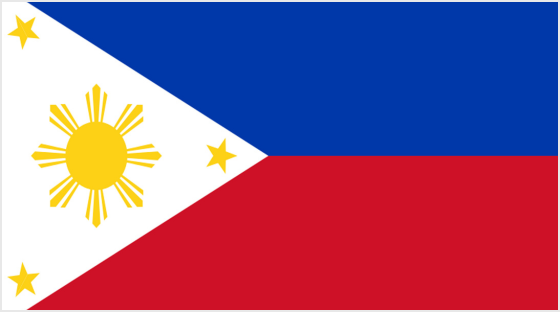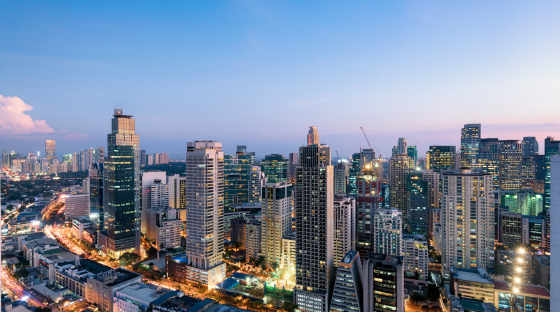Philippines

Overview
By 2033, the Philippines is forecast to become one of the Asia-Pacific region's trillion-dollar economies alongside China, Japan, India, South Korea, Australia, Taiwan and Indonesia. Under colonial rule by the Spanish and then the US before gaining independence in 1946, the country is a natural gateway from the West to the broader Southeast Asia market. With a top-quality education system and increasingly creative business culture, it’s a compatible environment for long-term outsourcing partnerships. Expertise in business process outsourcing tasks and sought-after skills such as big data, data analytics, cybersecurity, blockchain, digital commerce and fintech are on offer.
The Accelerance Global Network is the most curated list of high-quality global teams ever assembled.
2200
Developers
Total number of developers in our certified partner network by country
4
Certified Partners
Total number of certified partners in our global network by country.
17hrs
Time Travel (From NY)
Average flight time from NY to the major cities in the country.
67
Partner Innovation capability
The score reflects investment in STEM progrms and IT funding by country.
91
Partner Skill Level
Level of workforce skills and quality of education, including factors such as digital literacy, interpersonal skills, etc.
56
Partner Global Competitiveness
National productivity based on 12 core pillars, including government policy, infrastructure, economic stability, etc.
High
Software Outsourcing Readiness
Overall rating, based on the maturity of the tech sector, socio-political conditions, and on-the-ground research by Accelerance.

Talent Pool & Education
The Philippines offers a highly educated, English-speaking workforce and the country’s young population and growing middle class are important drivers of IT demand.
The most recent figures available from the Philippine Statistics Authority show the digital economy surging to about $36.5 billion in 2022, contributing 9.4% to GDP. According to the IT-BPM Association of the Philippines, by 2028 the tech industry is expected to generate more than one million new jobs in the country, of which 150,000 will be developer roles.
To meet the demand for digital skills, the government has doubled its investment in information and communications technology packages and IT infrastructure in public schools, with a focus on digital literacy ranging from basic coding to mobile app development. Software development for revenue management systems, tax collection, and a one-stop online platform for business processing are projects in the pipeline.
The Philippine Development Plan 2023-2028 specifies digital transformation as one of its underlying themes and public-private partnerships are being proactively encouraged with stakeholders in the skills ecosystem to develop digital careers in the workforce. Key trends include automation replacing routine business process outsourcing tasks, and core skills such as big data, data analytics, cybersecurity, blockchain, digital commerce, and fintech becoming increasingly in demand.
Language
The Philippines is officially bilingual, with more than 14 million people speaking English alongside Filipino. A legacy of the Philippines’ history as a US colony from 1898 to 1946, English is the principal medium of instruction in education, as well as the language of trade and law, so there is exceptional proficiency even in business and technical fields.

Economic Outlook
The Philippines is considered one of the most dynamic economies in East Asia and the Pacific. Rapid growth in the IT and business process outsourcing sector and a bounce-back in tourism are expected to drive momentum through 2024, following a doubling in international visitor arrivals over the past year. The country’s manufacturing sector is one of the fastest growing among the major economies worldwide and a rebound in electronics exports is expected as global demand recovers. The tertiary sector, which represents 61% of GDP and employs 58% of the country’s workforce, has also developed substantially, particularly in telecommunications, call centers, and finance.
Higher interest rates slowing private consumption and investment are predicted to lead to modest economic growth before the market picks up speed in the second half of the year. Over the medium term, the outlook will continue to be supported by strong domestic demand, driven by a robust labor market, continued public investments, and a boost in private investment due to recent policy reforms.
Political Conditions
Under Philippine law designed to protect against dictatorships, presidents can serve only one term in office. Duterte’s daughter, Sara Duterte, who ran on a joint ticket with Marcos and is now his vice president, is tipped to contest the next presidential race, scheduled for 2028.
However, the fragile cooperation between the Marcos and Duterte clans dissolved amid allegations of financial irregularities levelled at Sara Duterte, and descended into open hostility in late 2024 in an extraordinary Facebook post in which she called Marcos unpresidential and “a liar”, while also raising the specter of assassination.
Learn more about our customer stories.
Looking for a customer story in a specific technology or industry? Discover compelling customer narratives within a specific technology or industry that resonate with your unique software development needs.


.png?width=300&name=Copy%20of%20WEBSITE%20Stop%20Chasing%20Low%20Hourly%20Rates%20Unlock%20the%20True%20Value%20of%20Offshore%20Development%20(450%20x%20253%20px).png)



